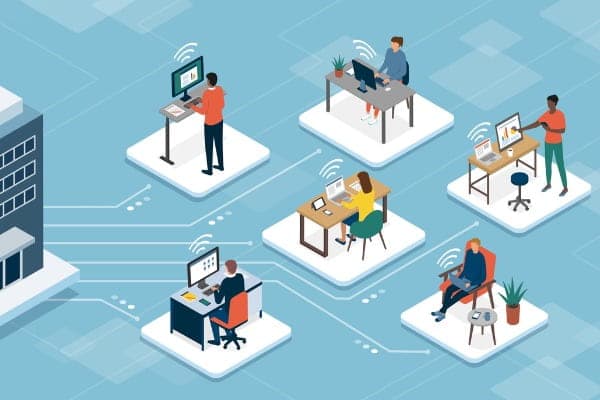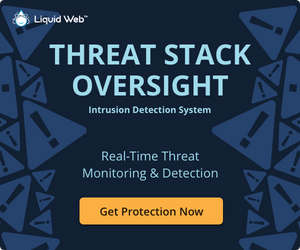6 Reasons Why Employees Need a VPN While They Work From Home
Now more than ever, companies are having employees work from home. With technology advances and the growth of businesses worldwide, a remote workforce can help an employer utilize employees, contractors, and even remote partners in ways that were not possible before. There are risks involved with having sensitive company data being accessed over the Internet, but having the right VPN solution can help mitigate security risks, and help keep prying eyes from seeing anything they should not while employees work from home.
6 Reasons Why Employees Need a VPN While They Work From Home
Here are 6 reasons why employees should use a VPN while they work from home:
1. Better Control Over Private Data
Managing desktops, laptops, tablets, and smartphones within a corporate setting can help control access levels and protect sensitive data, but once a device leaves the building, the risks of that data being seen by someone outside the company increase significantly.
Having an employee connect to the company’s virtual private network (VPN) to access the resources they need to get work done helps keep the data within the company, and helps prevent the need for local copies to be saved and transferred over the Internet. If an employee can only access the private data when connected into a workstation, either in-person or through a VPN while they work from home, then the data would not need to be publicly accessible through the regular Internet.
2. Protect Workers Devices
Remote workers may be connecting from other offices, outside companies, hotels, coffee shop Wi-Fi, public hotspots, or even just working from home. Each network could have its own security vulnerabilities, with a larger risk coming from any open public networks.
What are the Risks With Using Open Public Networks?
Some risks with using open public networks include:
- Packet Sniffing: If someone is listening in on the local network, they could see the traffic going to and from the device, and steal any data that is unencrypted, including logins and other private information.
- Man-In-The-Middle Attacks: Often this would be a fake Wi-Fi hotspot that is spoofing a real hotspot. When a client connects, the fake hotspot can pass along any data to the real website while saving a copy for itself.
- DNS Spoofing: If an attacker can compromise or spoof a DNS nameserver, then they could send a false IP address back during a lookup and cause traffic to go to their own server that’s impersonating another site.
Using a secured VPN can bypass those attacks with an encrypted tunnel directly through to the corporate network. With trusted certificates provided by the VPN server, the client would know they are connecting directly to the network, and any traffic that gets intercepted would just be encrypted packets that are not readable without the decryption key.
This can also be useful for workers who travel to other countries, or even if your company has teams overseas. If the VPN connection itself can be made, then it could be used to get around country blocks and filters that could inhibit access to other sites and resources needed by the worker. This can protect the company’s data from being viewed or recorded by any state or country-level monitoring.
Additionally, to help protect the user’s local machine, as well as the company’s private network, there are VPN solutions that scan the local system to make sure there is an active antivirus program running, along with a check for other possible signs of compromises. If any problem is found, it can alert the employee and prevent them from connecting to the network until the issue is resolved. More advanced solutions can monitor the network traffic itself to detect malicious activity that is already on the network. These types of solutions can also help stop it from spreading further than it already has.

3. Allow Access to Internal Systems
Depending on the amount of control allowed to a remote user, they might be able to reach computers and devices that are not available to anyone else outside of the network.
A VPN can access internal IP addresses, allowing users to connect and access internal network drives, shared folders, and local servers, as well as grant remote access to machines.
This allows remote workers to access to all of the tools and resources they need to get the job done. More control can be taken to limit what is safe to go out over the regular Internet versus what data should be protected and only accessible through a VPN connection.
4. Reduce Liabilities
Helping to prevent data from being lost, stolen, or compromised is always in a company’s best interest. A company’s records might include customer information, payment methods, contracts, financial records, and other proprietary information that should not get into the hands of anyone outside the organization.
Depending on the importance of the data, any stolen information could cause consequences such as lost revenue, lawsuits, or even lowered trust in the company itself. Setting up a VPN solution can help reduce the possible vectors of attack by substantially shrinking the number of attacks that could cause a compromise, and limit data that can be gathered from outside of the network.
5. Various Options for Various Prices
To help avoid losses like the ones just mentioned, a business should be willing to spend some amount of money to protect assets if the work is being done remotely. Even a pricier VPN service could be worth the cost if it can help prevent a loss to the company.
Luckily there is a range of products with varying prices to choose from.
- A small business with just a few employees may settle on a free, open-source VPN that is quick and easy to set up, yet will still provide strong encryption protocols to protect the connection.
- A large enterprise that has a team of network administrators might want to look into buying a managed VPN where connections are monitored, data is tracked, and usage is logged. Ensure the VPN can integrate with any existing infrastructure.
6. Test Out VPN Options
With so many VPN options available, there are a large number of guides, documentation, and videos online to make setting up and testing out a whole new system quick and easy.
If time and cost permits, try testing out an option for a week, and see how well it works for your company. If there are any problems, look for another VPN that solves that particular problem and test it out the next week.
If it is a paid service, contact the support team of the company to try to resolve the issue with them. If you don’t have the time to troubleshoot anything, then look for dedicated VPN appliances or even virtual appliances that can help get your team going quickly with minimal setup.
Top 5 Features for a VPN in 2020
Here are the five absolute must-have features for a VPN:
- Strong Encryption: Some older and cheaper VPN options still use weaker strength encryption. If packets do get intercepted, weaker encryption might be able to be decrypted eventually, but the chances of a higher strength encryption greatly reduce the chances of anyone decoding it without the proper keys. Complex encryption used to cause delays for legitimate users, but modern computers and devices have the power to quickly encrypt and decrypt data without much delay compared to the delays that caused in the past.
- Two-Factor Authentication: Using a password alone is not enough to properly secure a VPN login. A second method of verification is needed for additional security. Use an app based 2FA authenticator or a physical key, and avoid using text messaging 2FA, as it can be intercepted.
- Trust in the Service: If you are going through a third-party service that isn’t completely within your own network, make sure you trust their policies, data logging, and control of encryption keys.
- Active Security: A smart VPN can scan the local machine and help block any potential security threats from getting onto the private network.
- Reliability: A system that disconnects, crashes, gets overloaded, or locks people out is bad for productivity, and can cost the company in revenue if there is downtime.
Get a VPN While Teams Work From Home in 2020 and Beyond
If you have any remote workers who need access to sensitive information, then you should consider setting them up to connect to a VPN. The privacy and security that a VPN provides to protect the data, the users, and the company itself from outside attacks should be worth the initial investment costs.
Normal protections alone are not always enough, but a VPN paired with security awareness training, other security measures, and set guidelines for anyone who needs access to that data can greatly reduce the risk of attacks, data loss, and financial woes to a company.
Need a VPN? Check Out Liquid Web’s VPN and Get Secure Today.

Alex Gorzen
Alex Gorzen has been helping others with technology his whole life. He played with computers even before he could read and wants to make sure his children share that same love as they grow up. In his free time, he enjoys gardening, building things, and learning new skills.
Keep up to date with the latest Hosting news.



